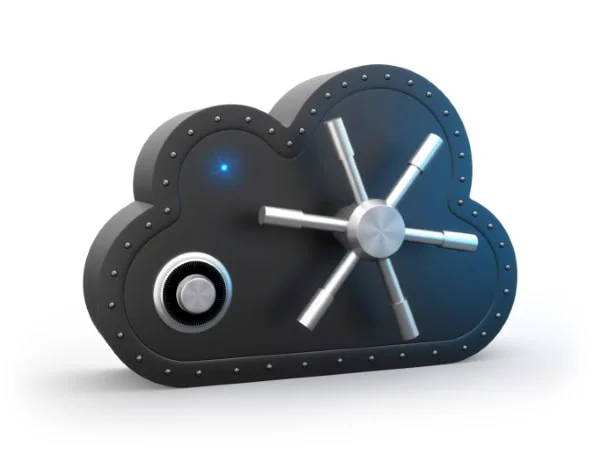Freelance Jobs are on the rise. More and more people are working as independent contractors – and many small businesses rely on freelance work. What is your role on this new economic eco-system of the freelancer economy? Whether you are the one doing the hiring or the one getting hired: The traditional employer-employee relationship is changing. Are you prepared?
Freelance Jobs And The Gig Economy
Welcome to the freelancer economy! In 2016, 34% of the U.S. workforce has been freelancing, full or part-time; some predict this percentage to rise to 50% by 2020. In Europe, the number of independent workers has increased by 82% since the year 2000, according to a study by the European Forum of Independent Professionals (EFIP).
There are multiple reasons for this. The current economy makes it harder to find permanent jobs, and many employers struggle to create them. Some simply enjoy the freedom of choosing who, when and where to work with. For others, freelancing seems a good a way balance family and a career. Whatever the reasons: The traditional relationship of employer and employee is changing. What does this mean for you? Read on.
Hiring Freelancers – And How To Keep Them
If you’re a small business owner, hiring freelancers might be the best way to get a job done without any of the responsibilities of having long-term employees. This no-strings-attached employment relationship makes sense if you are just starting out and don’t have the financial standing to afford permanent staff, or if you need a specialist for one project only. Still: There are some things you need to be aware of.
- Freelance workers do not work for free. They deserve to get paid as any other of your employees: in time, fair and In fact, hiring a freelance contractor it is not necessarily cheaper. In fact, many freelancers will charge more than your regular employee. Rightly so, because they need their salary to pay for things like infrastructure or insurance. All the things you don’t have to take care of anymore.
- Freelancers need to get paid on time. Hiring freelancers will save you some paperwork, that’s true. But not all of it. They will bill you for their work, and – just as you expect them to deliver their work on time – expect these invoices to be paid on time. If you don’t, well, legal problems as well as a damaged reputation might await you, which is not a good way to succeed in business. So, please, keep track of your bills and expenses at all times!
- Freelancers can be team-workers. If your staff consists of several freelancers working together, you need to treat them like the virtual team they are. Have regular team-meetings, use a shared communication channel, and your new team will thrive. With the right tool, you can even track their time – and thus track their cost. So you won’t be surprised when the invoices arrive next month.
- Freelancers can quit, too. Frequent change of staff is bad if you want to run a successful and sustainable business. Try and maintain a long-term relationship with your freelancers. Always keep in touch and make sure you know what your freelancers are up to. And if they decide they cannot work for you any longer, have them transfer the knowledge they acquired while working for you.
- Freelancers are free to work for whomever they want. Even your greatest competitor. If you enjoy the benefits of the no-strings-attached employment policy, you need to realize that your freelancer might enjoy it, too. They can leave you in a blink, and (unless you have a contract with them stating the opposite), they can go and work for whomever they want. Even your biggest rival. So better treat them well.
Going Freelance – And Getting Paid For It
On the other hand, if you are going freelance, you are now shouldering all the responsibilities your employer used to do for you in the old economy. In addition to doing your job and being good at it, there are now several things you now need to do. Some scary, time-consuming things. Like:
- Taxes. You need to pay your own taxes: The best reason to keep track of your earnings and your expenses. Always file your tax reports in time, and get informed what kind of taxes you are in for beforehand. Do you need to register for VAT? And do you know what tax deductions you are entitled to? Best to get professional advice to answer all these questions – it will be worth it.
- You need to pay – and find! – your own insurance. What happens when you need to have your appendix removed? Or some guy runs you down with his car? You might be healthy, careful and sensible – these things just happen. Are you prepared? As scary as it seems, it is really important. Don’t put it off: Get informed on your insurance options. Health insurance, legal insurance or a retirement plan: It’s in your hands now. Go out and do it now. Ask around, google your head off or contact a professional advisor.
- You are your own accountant. Sending out invoices, keeping your budget and even setting your own price: As a freelancer, that’s part of your job. Get organized and save time and money with the right tools for accounting, time-tracking and project management. You will need it.
- You create your own work-environment. For some, working from home in their pajamas is the right thing to do. For others, the permanent home office might be a source of depression. Find out which type you are. Whether it is working from Starbucks, or being part of a coworking community: create your perfect work-environment. And don’t forget to add these costs to your budget!
- You are your own boss. Except you are not. Actually, you got yourselves not one but several new bosses, also known as clients. They are the ones hiring and paying you. Unless you are top of the top of the crème de la crème, you need to deliver on time, be friendly and reliable to keep them. And don’t forget: Hustling is your job, too! You are not only your own accountant, but your own key accountant manager as well. Keep on hustling – and keep your dearest clients close to you.
The New Freelance Relationship
Hiring a freelancer is a bit like dating your workforce: It might turn out to be non-committing, fun one-night-stand, no strings attached. Or it might be the beginnings of a long-term, lasting relationship that will make you thrive for the next couple of years – or even a lifetime. Freelancing might feel like being in an open relationship: You get to enjoy different lives with different clients and work cultures. Enjoy it while it lasts! Because, who knows, maybe one day you will get together with one of them for life…
Whatever your goal, and whatever side of this new kind of working relationship you are on: Make sure it is loving, fruitful and long-lasting!
Regards, zistemo






